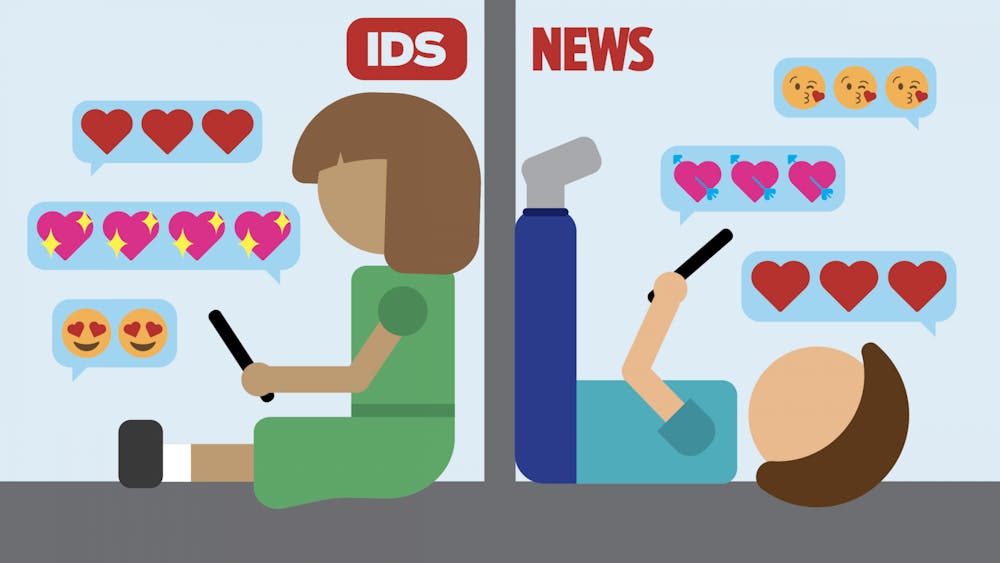With social distancing and quarantine challenging people's ability to have sex, many are getting creative when it comes to dating, according to a survey conducted by the Kinsey Institute that is analyzing changes in people's sexual and romantic lives during the COVID-19 pandemic.
The first paper, based on data collected from a couple thousand participants so far, will reflect on the initial changes in behavior in the beginning of the quarantine. The study is still accepting new participants for the survey on the Kinsey Institute's website. People who are 18 or older can take the survey.
“The real take away is that people are having less sexual activity, including less sex with a partner and masturbation, but adding an addition to their current sex life,” Justin Lehmiller, the head author of the first paper, said.
Lehmiller said 1 in 5 participants reported making a new addition to their sex life since the pandemic began, such as trying behaviors such as sexting, sending nude photos, trying new positions and sharing sexual fantasies. Around 43% of people reported that their sex life has declined during the quarantine.
The four researchers started taking participants for the survey in mid-March. The online survey was posted to the Kinsey Institute’s social media pages March 21, asking people to take part in the longitudinal study, which consists of three waves of surveys, with a new one sent every two weeks to monitor changes in responses.
In an effort to document how COVID-19 affects social and sexual lives, the questions asked in the survey vary, including topics such as how people are feeling about the pandemic and the patterns of sexual behavior during the quarantine.
“We’re focused on different facets of people's lives because every one person's experience is really unique,” Lehmiller said. “Dating apps are just one of many behaviors we are seeing changing during this time.”
IU freshman Sierra Shupe, an active user on Tinder, has resonated with the data collected by the Kinsey Institute.
“It’s just to be expected that people are finding more ways to have that kind of communication,” Shupe said. “Right now, unless you’re living with a partner, online romance is the most personal form of getting to know new people.”
Shupe started to quarantine when she went home to Fort Wayne, Indiana, for spring break. She said she and most of her three IU roommates have all increased their usage of dating apps.
“Right now there’s nothing better to do, so I spend a lot more time on it just swiping,” Shupe said. “There are new people, and therefore new experiences, which is something I think a lot of people are looking for right now.”
Freshman Abby Haymond, one of Shupe’s roommates, said she experienced changes in her romantic life with her boyfriend since quarantine began. Haymond has been staying at home in West Lafayette, Indiana and her boyfriend lives a little more than an hour away by car in Fishers, Indiana.
“It’s such a big change to go from seeing each other every other day to only once a week,” Haymond said. “We FaceTime every night and text every other day.”
Haymond now has quarantine dates with her boyfriend, involving walks around their neighborhoods, laying in lawn chairs in their backyards and ordering food and passing it between them — and always remaining six feet apart.
“It makes sense that people are moving online for romantic communication, like sending sexts or photos,” Haymond said. “People need to interact with other people, whether in person or not.”




